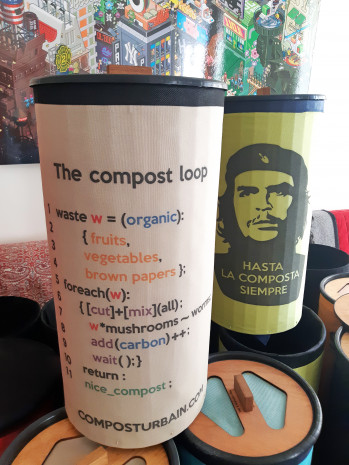Of course, the product concept of Compost Urbain played a key role in jury's verdict. It offers a solution to the problem faced by many households in densely populated cities that want or need to reduce the volume of waste they generate: where do they dispose of the organic waste from the kitchen?
Hammer's answer is to keep it in the kitchen, to be more precise in a silo that he offers in two versions under the name Compost Urbain. Version one with its cover made from furnishing fabric blends into the home, while version two consists of upcycled PVC and is suitable for the balcony or patio.
"The basic idea," explains Malcolm Hammer, "is that for composting, the largest possible surface is required for exchanging air, rather than maximum volume." The material he uses is insect-proof but breathable, and that is the secret.
This is why the size is also important: 50 cm high, with a diameter of 25 cm. As on the forest floor, where the fungi responsible for decomposing organic material lie no deeper than 25 cm, the kitchen waste is aerated in the silo.
This is also the reason why the compost doesn't smell: "The more the material is aerated, the more closely it resembles the structure of the forest floor, on which the organic material largely dries out," explains Malcolm Hammer. It is similar to a sponge: "That is the key." Composting is stimulated by wood chips and mushroom straw; earthworms can also be used if preferred.
The Gardena garden award now offers Hammer the opportunity to discuss his ideas with experts and address questions regarding production and marketing, not least with a view to the European Waste Framework Directive. This is because it was laid down in 2018 that…

-129x68.jpg)
-345x194.jpg)







